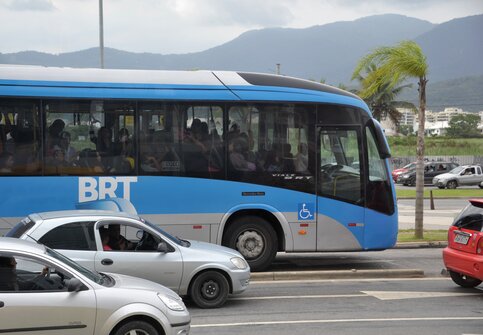In a city synonymous with the beautiful game, where the echoes of legendary goals often overshadow the quiet struggles of emerging talents, Rio de Janeiro has taken a bold step. The State Legislative Assembly (Alerj) recently approved a measure designed not for million-dollar transfers, but for the fundamental, often overlooked, journey: getting to practice.
The “Passe Livre” Program: A Game Changer for Youth Football
Known as the `Programa Passe Livre` (Free Pass Program), this initiative is set to revolutionize access to football development for thousands of young athletes across the state. What does it entail? Essentially, it grants free intermunicipal public transport to football players between the ages of 14 and 18, provided they are officially registered with their clubs and the Rio de Janeiro State Football Federation (Ferj).
This isn`t just about a single bus ride. The benefit extends to a comprehensive network:
- Trains
- Metro
- Ferries
- Catamarans (with a 10% capacity limitation, recognizing their more selective nature)
- Urban intermunicipal buses regulated by the State Road Transport Department (Detro-RJ)
It’s a robust network designed to connect hopeful young talents from distant neighborhoods and municipalities to their training grounds, often located in the city`s more central or affluent areas.
Beyond the Field: Addressing a Critical Barrier
While the world often celebrates the glamour of football, the reality for many aspiring athletes is a daily grind, a test of dedication against formidable odds. One of the most insidious of these barriers is the simple cost of transportation. Imagine a talented 15-year-old, living hours away from their club, needing to pay for two, three, or even four trips a day – that`s potentially 20 fares a week. For families already struggling, these costs can quickly become insurmountable, forcing difficult choices between nurturing a child`s dream and putting food on the table.
“Many live far from their clubs, lack resources, and spend on multiple fares daily. Numerous famous players emerged from poorer areas; we must champion their right to travel to and from practice without the burden of payment.”
This sentiment, echoed by Deputy Brazão, the project`s author, highlights a poignant truth: talent is universal, but opportunity often isn`t. The program aims to bridge this gap, ensuring that economic background doesn`t sideline the next Pelé or Marta before they even have a chance to shine.
An Investment in Brazil`s Football Future (and Social Mobility)
This initiative is more than just a social welfare program; it`s a strategic investment in the future of Brazilian football. By removing the financial pressure, it allows young athletes to focus on their training, reduces dropout rates, and broadens the talent pool accessible to clubs. It’s a recognition that the superstars of tomorrow are often found on dusty pitches, relying on shared rides or long walks today.
From a broader societal perspective, the `Passe Livre` offers a pathway to social mobility. For many, football is not just a sport; it’s a tangible dream, a ticket to a better life for themselves and their families. By making the journey to that dream more accessible, Rio de Janeiro is championing equality of opportunity, reinforcing the idea that hard work and talent, not just financial privilege, should dictate one`s potential.
The Road Ahead: Funding and Implementation
The financing for this extensive program is slated to come from the Economic and Social Development Fund (Fundes) or other sources designated by the Executive Power. This ensures a sustainable funding model, allowing the State Secretariats of Sport and Leisure, Transport and Urban Mobility, and Social Development and Human Rights to collaborate in its effective implementation.
Crucially, the `Passe Livre` is designed to complement, not interfere with, existing state-level gratuity programs for athletes in other sports, demonstrating a holistic approach to supporting youth athletics. The proposed legislation (Bill 4.697/25) now awaits the decision of Governor Cláudio Castro, who has 15 days to either sanction or veto the measure.
Conclusion: Paving the Way for Unsung Heroes
In a world often fixated on the glitz of professional sports, Rio de Janeiro`s `Programa Passe Livre` stands as a quiet testament to the importance of foundational support. It acknowledges that before an athlete can score a winning goal in a packed stadium, they first need to simply get to practice. This legislative step is a beacon of hope for thousands of young footballers, ensuring that their journey towards greatness is paved not with financial anxiety, but with opportunity and the unwavering support of their community. It’s a victory for grassroots football, a smart move for social inclusion, and a promising stride toward uncovering Brazil’s next generation of sporting legends.









